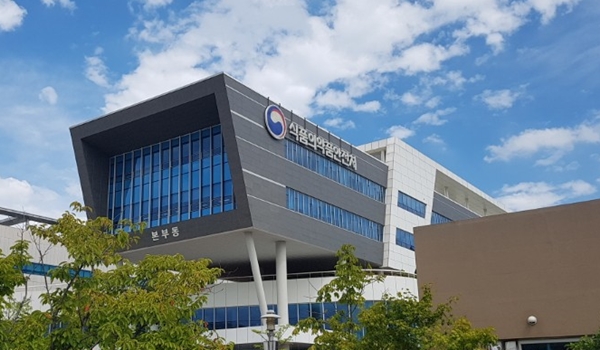The Ministry of Food and Drug Safety (MFDS) said it approved Takeda Korea’s Fruzaqla (ingredient: fruquintinib), a metastatic colorectal cancer treatment.

Fruzaqla inhibits signal transduction of vascular endothelial growth factor receptors (VEGFR), which play a crucial role in tumor angiogenesis and growth. The MFDS anticipates that the drug will offer a new treatment opportunity for patients with metastatic colorectal cancer (mCRC) who have limited options with existing therapies.
The drug is indicated for adult patients with metastatic colorectal cancer who have previously undergone treatment with fluoropyrimidine, oxaliplatin, and irinotecan-based chemotherapy, as well as anti-VEGF or anti-EGFR therapy (for RAS wild-type patients).
It is specifically approved for patients whose disease has progressed despite treatment with trifluridine/tipiracil and/or regorafenib, or who are intolerant to these therapies.
Notably, Fruzaqla was designated as the 20th product under Korea’s Global Innovative Product on Fast Track (GIFT) system, which expedites the review of globally innovative medical products for life-threatening or rare diseases. Through this system, the MFDS conducted a fast-track review to ensure the drug’s rapid introduction into clinical settings.
Related articles
- Takeda Korea General Manager Moon to resign from management
- Takeda’s market exit and return of vonoprazan raise stakes in Korea’s drug pricing battle
- Takeda taps Julie Kim as next CEO, 1st Korean American to lead global pharma company
- Takeda Korea expands insurance coverage for Firazyr
- Korea's colorectal cancer screening rate hits record high in 2024, driven by colonoscopy inclusion
- Takeda Korea appoints Park Kwang-gyu as new GM
- Takeda Korea appoints Kim Mi-seung as head of oncology business unit
- Takeda launches Fruzaqla in Korea for hard-to-treat colorectal cancer
- Takeda’s Fruzaqla becomes Korean doctors’ 1st choice in late-line colorectal cancer

